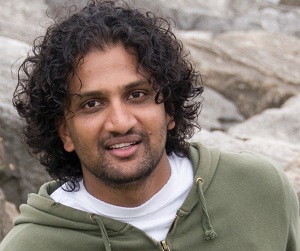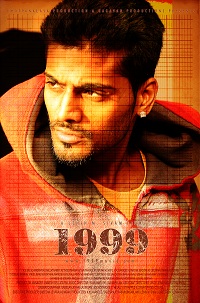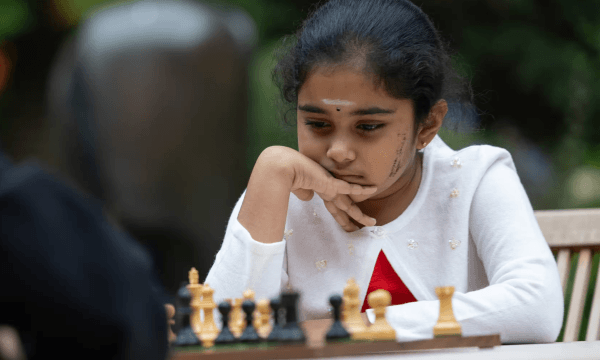
Driven by his passion for films, Lenin M. Sivam has always known that he wanted to be a filmmaker in spite of the obstacles he faced. He now has three short films to his credit, in addition to his first feature film 1999 which debuted at the Vancouver International Film Festival (VIFF) in 2009. 1999 went on to be selected as one of the Top 10 Canadian Films at VIFF 2009, was an official selection at the ReelWorld Film Festival in Toronto in April 2010,—where it won the CBC Audience Award—and most recently won the “Best Feature Film” award at the Ulagayutha Film Festival in Chennai, India. TC had the opportunity to talk to this filmmaker about what inspires him.
TamilCulture: Tell us a bit about yourself: Lenin M. Sivam: I was born in Jaffna, Sri Lanka and came to Canada in 1991 when I was 17 and have lived in Toronto ever since. I went to high school in Toronto and went to the University of Waterloo to pursue my undergrad. I hold a full time job as a software architect and away from work and the family I try to find time to make movies.
TC: Since you always wanted to be a filmmaker, how did becoming a software architect enter the picture?
LMS: When I graduated from high school, I told my family that I wanted to go into film studies or astronomy as these two fields interest me immensely. But I was instead told to pursue studies in computers. I caved in and ended up going to the University of Waterloo to pursue a degree in Computer Science. My father was a playwright and an actor in the then budding Tamil film industry in Sri Lanka and he and my family had to make a lot of sacrifices to support his pursuit. Naturally, my mother was bit apprehensive about me following in his footsteps. She told me to finish my undergrad first and then do whatever I desired. I started making movies as soon as I graduated in 2000. My wife and kids have been tremendously supportive.
TC: You’re described as a self-taught filmmaker. How have you learned this craft?
LMS: I took some film courses at Ryerson University, read many books on filmmaking, and used resources online. Everything is out there, so you just have to read, read, and read. But it can be confusing. For instance, screenwriting is the cornerstone of a great film, yet there are so many great books presenting very different, often conflicting ideas about it. Over time you pick and choose different bits and develop your own idea about films, and filmmaking, and this defines who you are as a filmmaker. You have to write about something that you feel very strongly about - there should be a compelling message. When you are passionate about the story you tell, it’s so easy to fight for it and work hard to see it through.
 TC: What has inspired you to tell the stories that you have chosen for your films?
TC: What has inspired you to tell the stories that you have chosen for your films?
LMS: Honestly, when I started off I never wanted to make films like 1999 or any of my other movies. I always wanted to do genre films. But then you’re just one among the millions of aspiring directors waiting for their lucky break. I had to differentiate myself. I decided to focus specifically on the Tamil community who escaped from the civil war in Sri Lanka and was struggling to adapt to this land. I started experimenting with short films and the Independent Art Film Society of Toronto recognized my first film with the Best Film of the Year Award. This boosted my confidence immensely and encouraged me to take on bigger, riskier projects. That’s how it all started. I always wanted to go back and do high budget, mainstream movies, but now I see myself being sucked more and more into these kinds of unique films that have a huge pull with people and festivals.
TC: What has inspired you to address mental health illnesses in your films?
LMS: The topic is close to my heart because I knew someone who killed himself as a result of untreated depression. His loss had a profound impact on me and I felt that it was important to broach the subject and the stigma attached to it through an incisive film. This is definitely a big issue in the Tamil community. So many people are suffering from untreated depression, partly due to a lack of knowledge and mainly due to the stigma often attached to mental health illnesses. My short film Uruthy (Strength) is about a protagonist who is clinically depressed. He is a recent immigrant, has low self-esteem, and blames himself for everything that had gone wrong in his life. He gets to the point of trying to kill himself, but luckily comes across an article about depression. He recognizes that his symptoms are characteristic of depression and slowly seeks medical help.
TC: What are some of the challenges you have faced while pursuing filmmaking?
LMS: Taking risks with film projects has been hard because I have a family to support. Films are not easy and they’re time-consuming, financially draining, and you never know if you are going to be successful. Financing is the key. Even if I get a producer, we don’t even have an established industry—we find it very difficult to get people to come to the theatre to watch our films. So how do you make the money back? Our only hope is to get into film festivals. From there if the movie is picked up by a distributor, it can go to the next level. The challenge is to be recognized and be given a chance in the Hollywood structure. Although 1999 has gone to many festivals and I have received awards, the challenge is not over. It is an uphill battle for sure to find a producer and a distributor that are willing to bet on your vision.
TC: Are you satisfied with what you’ve been able to accomplish as a filmmaker?
LMS: No, there’s much more to come. As much as they are decent films, I don’t feel that I have shown my full potential as a filmmaker in the movies that I’ve made. Every time I sat down to watch 1999 shot-by-shot, all I would see were mistakes. When I showed it to people they started giving me confidence but I want to make a film that I’m satisfied with. No matter how big the challenges are, I am going to continue to work towards my dream so that I don’t have any regrets. I am very confident that I will get plenty of opportunities to make successful movies that make an impact.
TC: What advice do you have for aspiring filmmakers?
LMS: Just be honest to yourself and do your best. Be true to the story and the characters. Try to pick a topic that is close to your heart - a story that only you can access. That’s what appeals to the broader audience—the more micro you get about your story, the more macro the appeal will be.
Quick 5:
TC: Favourite director?
LMS: Quentin Tarantino
TC: Favourite film?
LMS: Pulp Fiction.
TC: A favourite quote:
LMS: “And, when you want something, all the universe conspires in helping you to achieve it.” Paulo Coelho, The Alchemist
TC: Who inspires you?
LMS: My characters as I love them and they live in my head inspiring me to tell their stories.
TC: To me, Tamil culture is:
LMS: “Who I am”
—Nive Thambithurai

























